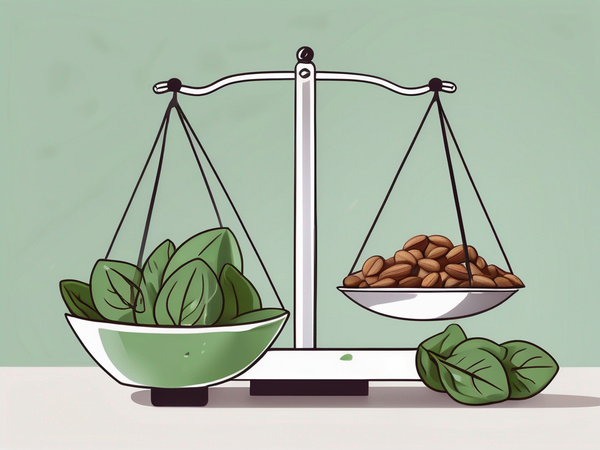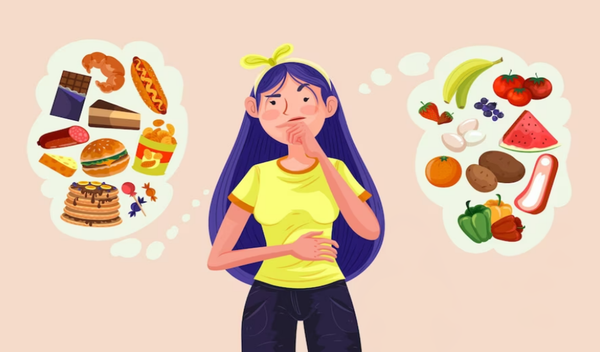Weight gain doesn’t just happen without any reason. There are several factors at play that lead to weight gain. And if you know which factor is causing you to pile on weight, you can deal with it better and ensure proper weight management. Want to know what factors contribute to weight gain?
Read along. This blog talks about the factors that lead to weight gain and provides you with solutions to deal with the same.
What Factors Lead to Weight Gain and How to Deal with Them?
Here are a few factors that will lead to weight gain and help you deal with it better.
1. PCOS (hormonal issue)
PCOS or polycystic ovary syndrome is a common reproductive issue that impacts women of childbearing age. Along with other symptoms such as low infertility rate, hair growth, and deep voice, PCOS also leads to weight gain/obesity. How?
Well, PCOS makes your body insulin resistant, which forces the pancreas to produce more insulin to maintain blood sugar levels. And this leads to the secretion of androgen (male hormone) that further causes weight gain.
How to deal with it?
You can deal with the symptoms of PCOS by opting for a healthy diet, including some physical activity and some medications as prescribed by the doctor. Also, you can go for a reliable supplement called, Fertility for Her, that’ll help you improve the chances of becoming fertile.
2. Hypothyroidism (hormonal issue)
The thyroid gland, located behind your neck, plays a crucial role in regulating your metabolism and impacting your body’s ability to burn food for energy. However, when the thyroid gland cannot produce the required quantity of hormones, it leads to a condition known as hypothyroidism.
This condition slows your metabolism and negatively impacts your body’s ability to burn calories. And this leads to fatigue and weight gain.
How to deal with it?
You can go in for oral medications or consume fresh eggs, baked fish, and dairy products to deal with hypothyroidism and thus ensure proper weight management.
3. Some Medications
Regular consumption of some medications can lead to weight gain as a side effect. For instance, antidepressants are known to cause modest weight gain after regular use. This usually happens because medications temper your willpower and often increase your appetite.
How to deal with it?
Ask your doctor to replace the medications causing weight gain with something else.
4. Sugar (hormonal issue)
When you consume something that’s high in sugar for a long time, it leads to elevated blood sugar levels. As a result, leptin and insulin resistance in your body increases, both of which are associated with weight gain or obesity.
How to deal with it?
Limit your sugar intake for better weight management.
5. Stress and Poor Sleep
Certain individuals tend to eat more when they’re happy, sad, angry, stressed, or simply under the effect of emotions. Also, certain studies say that people who sleep less are more likely to gain weight. This happens because your body releases hormones that control your appetite during sleep.
How to deal with it?
You can reduce emotional eating by becoming more aware of your food habits. Doing this will eventually lead to eating within a limit and help in better weight management. Also, try to get at least 6-8 hours of sleep each day, which will further aid in you losing weight. Correct your sleep cycle, by including Restful Sleep Melts to your daily routine.
These were some common factors that lead to weight gain in women. And you can deal with these factors by following the aforementioned corresponding solutions. However, if you aren’t able to find out the right factor behind your weight gain or poor weight management, you can go in for Burn Slow.
What is Burn Slow?
Burn Slow from Wellbeing Nutrition is a reliable supplement meant for women who wish to manage their weight effectively. These slow capsules come with fast-absorbing L-carnitine along with slow-release multivitamin beadlets that contain caffeine and chromium.
This supplement can help you:
- Promote Fat Loss
- Boost Metabolism
- Ensure Healthy Weight Management
- Improve Muscle Recovery
- Enhance Focus
- Increase the Feeling of Satiety or Fullness
One capsule each day after lunch or breakfast is what you need to experience the aforementioned benefits. Now, how can you beat that?
Is Burn Slow Safe?
Burn Slow is plant-based, non-GMO certified, contains no allergens and is clinically-proven to offer the above-mentioned benefits. So, yes, it’s completely safe for consumption.
Wrapping Up
Everyone thinks that eating more is what leads to weight gain. While it’s not false, overeating isn’t the only factor that leads to poor weight management or weight gain. There are several other factors at play, such as hormonal imbalance, poor sleep, stress, insulin resistance, etc.
Fortunately, you can easily deal with weight gain by following the solutions mentioned above and by including Burn Slow to your daily diet. So, order it right away.
References
Sanyal, D., & Raychaudhuri, M. (2016). Hypothyroidism and obesity: An intriguing link. Indian journal of endocrinology and metabolism, 20(4), 554–557. https://doi.org/10.4103/2230-8210.183454
Ndefo, U. A., Eaton, A., & Green, M. R. (2013). Polycystic ovary syndrome: a review of treatment options with a focus on pharmacological approaches. P & T : a peer-reviewed journal for formulary management, 38(6), 336–355. https://www.ncbi.nlm.nih.gov/pmc/articles/PMC3737989/
Diamanti-Kandarakis, E., & Dunaif, A. (2012). Insulin resistance and the polycystic ovary syndrome revisited: an update on mechanisms and implications. Endocrine reviews, 33(6), 981–1030. https://doi.org/10.1210/er.2011-1034
Ness-Abramof R, Apovian CM. Drug-induced weight gain. Drugs Today (Barc). 2005 Aug;41(8):547-55. doi: 10.1358/dot.2005.41.8.893630. PMID: 16234878. https://pubmed.ncbi.nlm.nih.gov/16234878/
National Heart, Lung, and Blood Institute. (2012). What causes overweight and obesity? Retrieved August 8, 2012, from https://www.nhlbi.nih.gov/health-topics/overweight-and-obesity
Macdonald I. A. (2016). A review of recent evidence relating to sugars, insulin resistance and diabetes. European journal of nutrition, 55(Suppl 2), 17–23. https://doi.org/10.1007/s00394-016-1340-8




























